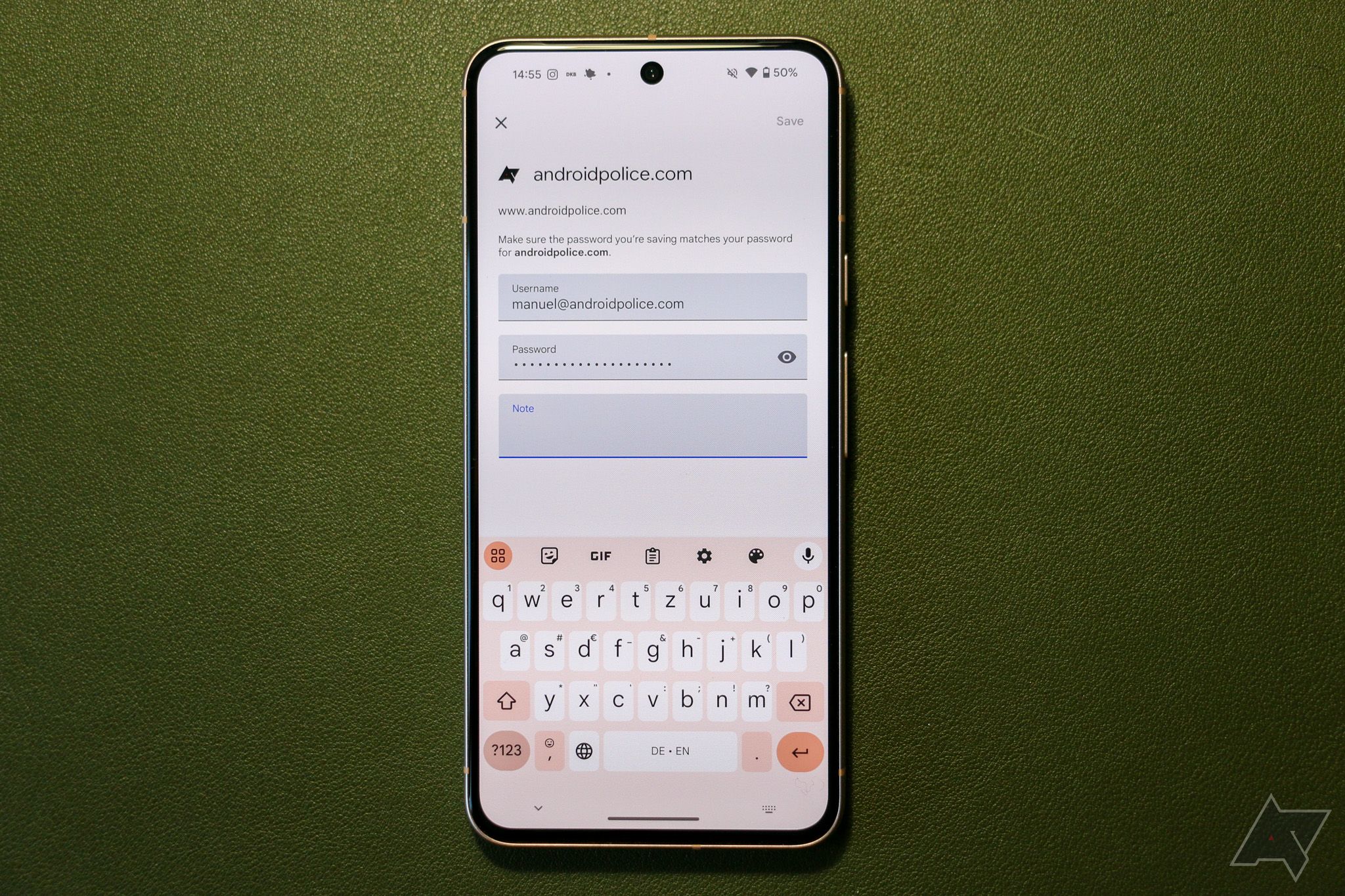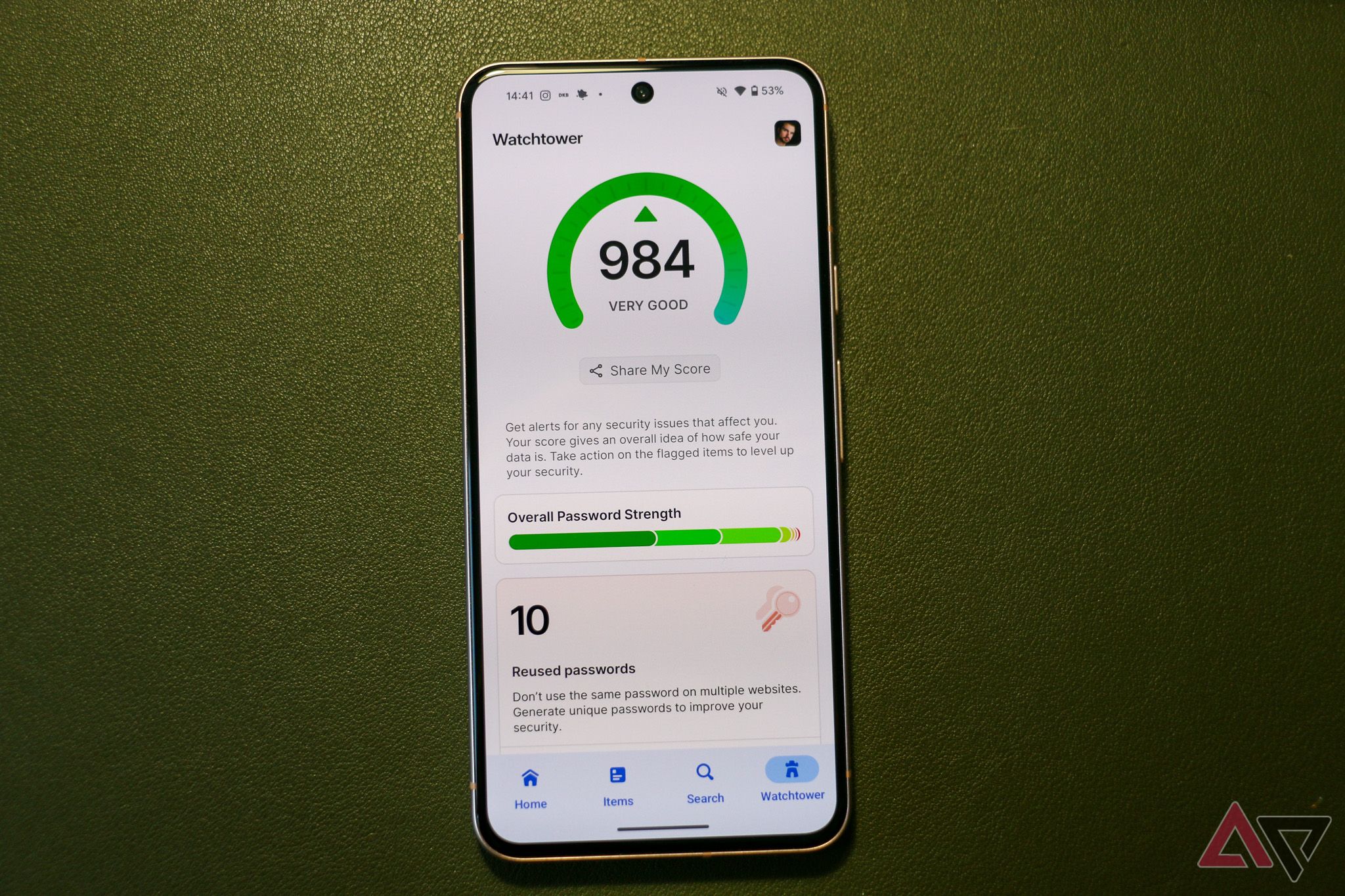Our countless online accounts demand unique and robust passwords, and remembering them is nearly impossible. That’s where password managers step in. However, with many options available, choosing the right one can feel overwhelming. After extensive testing and personal experience, I curated a list of five password managers I recommend. These tools simplify password management, boost online security, provide peace of mind, and keep your credentials secure and easily accessible on Android, iPhone, Mac, and Windows desktop.
Related
I went passwordless: Here’s how my passkey journey has been so far
Is the world ready for passkeys, or should you wait a little longer?
5
Enpass
A flexible password manager
Enpass has an offline-first approach with the flexibility to store your data locally on the device. It’s the major selling point for users who prioritize maximum control over their data and are wary of potential cloud-based data breaches (looking at you, LastPass).
When you want to sync your login credentials, you can choose any cloud storage platform. You can use OneDrive, Google Drive, Dropbox, or self-hosted services like Nextcloud to save and sync your password entries.
Enpass has native apps on all major platforms, including iOS, Android, Windows, Mac, and Linux. It also has extensions for Chrome, Safari, Firefox, and other browsers. Speaking of its features, you can create new entries with all the required options, the ability to generate strong passwords, auto-fill on iPhone and Android, and set up passkeys and TOTP codes for two-factor authentication.
After a while, you will fill Enpass with hundreds of entries, including passwords, credit cards, personal documents, and more. Here is where organization becomes key. You can create multiple vaults, like Work, Personal, Family, Bank, and more, and share specific vaults with family members for seamless collaboration.
Other security features include Passkeys, password audits to make sure you don’t use weak and repetitive passwords, and breach monitoring. Enpass supports up to 80 templates for password entries. For instance, if you select Credit Card, it displays relevant files to fill in. Enpass is also one of the rare password managers that offer a one-time plan.
Enpass
$24 per year / $100 one-time plan / included in Google Play Pass
$36 per year for up to 6 people
4
Dashlane
A password manager with a VPN
Dashlane is another robust password manager that ticks all the right boxes. It’s the only password manager that offers a VPN service to Premium and Family subscribers. The company partnered with Hotspot Shield to enable VPN for eligible users.
Speaking of password management, Dashlane supports all the essentials, such as a password generator, secure notes, auto-fill, and multiple templates to create relevant entries. Dashlane’s strength lies in its additional security features, such as dark web monitoring, which provide an extra layer of protection. Its password health dashboard actively identifies weak or reused passwords and encourages users to strengthen their security posture.
I also appreciate its smooth and modern interface. Whether adding a new password, checking my password health, or accessing my secure notes, I appreciate how easily I can navigate between the different sections.
However, I can’t ignore the fact that Dashlane’s premium plans are on the pricier side. For someone on a tight budget, it might be a bit of a stretch. I think it’s due to the inclusion of the VPN service. Also, the limitations of the free version are frustrating and push you toward a paid plan.
Dashlane
$60 per year
$90 per year for up to 10 people
3
Google Password Manager
Ideal for those invested in the Google ecosystem
If you want a basic password manager that does the job without breaking the bank, go with Google Password Manager. The first thing that strikes me is its convenience. It’s built into Chrome, so there’s no need to download extra apps or extensions. If you’re heavily invested in the Google ecosystem, it integrates seamlessly.
When I create a new account or log in to a website, Chrome automatically prompts me to save the password. It’s effortless. As expected, it’s also built into Android and has a dedicated app to access your password entries.
However, the password entry options are basic. You can add a username, password, and a note, and that’s about it. If you are looking for a password manager that acts as a digital wallet, check other options on the list. Still, the security check-up feature is quite handy. It scans saved passwords for weaknesses, such as reused or compromised credentials, and provides recommendations for improvement.
Before you go all-in with Google Password Manager, learn about its limitations. Compared to its rivals, Google Password Manager lacks advanced organization, tags, 2FA, VPN, and more. Despite that, I find Google Password Manager to be a convenient and user-friendly option for basic password management.
2
1Password
My favorite one
1Password took a performance hit when it switched to the Electron framework with the v8.0. However, it’s still capable and feature-rich enough to earn a place on my list. Although it’s been on the market for years, 1Password has never been in the news for security concerns and other wrong reasons.
1Password offers a clean, intuitive, and visually appealing interface. Setting up my vault and importing my existing passwords was a breeze. I particularly like how organized it is. I can easily categorize my logins, secure notes, and other sensitive information, which makes finding what I need quick and efficient.
As always, it’s a cross-platform solution, and the browser extensions are excellent. They integrate smoothly with my browsers and make auto-filling logins a breeze. The Watchtower is another thoughtful add-on. It actively monitors my passwords and provides timely alerts to avoid unpleasant scenarios.
The feature list continues with end-to-end encryptions, vaults, seamless sharing, passkeys supports, TOTP, and a robust password generator.
1
Bitwarden
Open source and feature-rich
Whether you use 1Password, Dashlane, Google Password Manager, Enpass, or LastPass, none gives you the flexibility to review the source code. Here’s where Bitwarden stands out due to its open source nature. Being open source, any security expert or researcher can dig into the code and see how it works. This level of transparency is reassuring, especially when dealing with something as sensitive as password management.
Bitwarden offers a clean user interface, cross-platform support, and solid core functionality. You can generate strong and unique passwords, support password auditing, and use 2FA. Bitwarden Send is a unique add-on that allows you to send encrypted text and files to anyone, even if they don’t have a Bitwarden account. The Premium plan is also affordable at $10 per year.
Boost your online security
Whether you want a premium experience or a reliable, open source solution, you have ample options. Ultimately, the best password manager is the one that fits seamlessly into your workflow and security needs. Each offers a significant upgrade over relying on weak or reused passwords. What are you waiting for? Take them up for a spin and pick one for a more secure and stress-free online experience. Aside from a password manager, you can use these apps to supercharge your productivity on Android.












